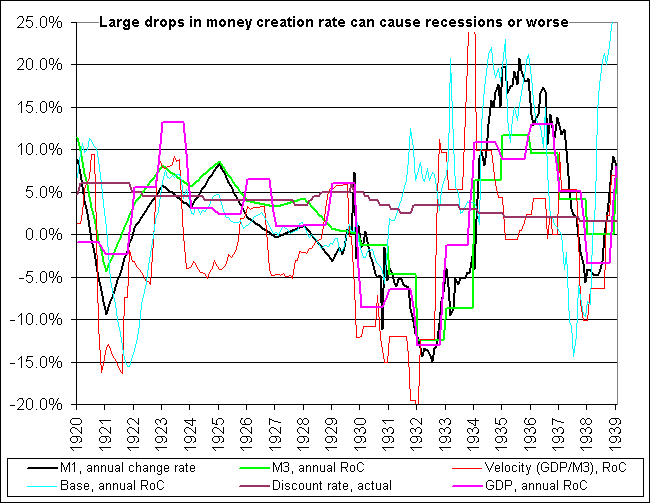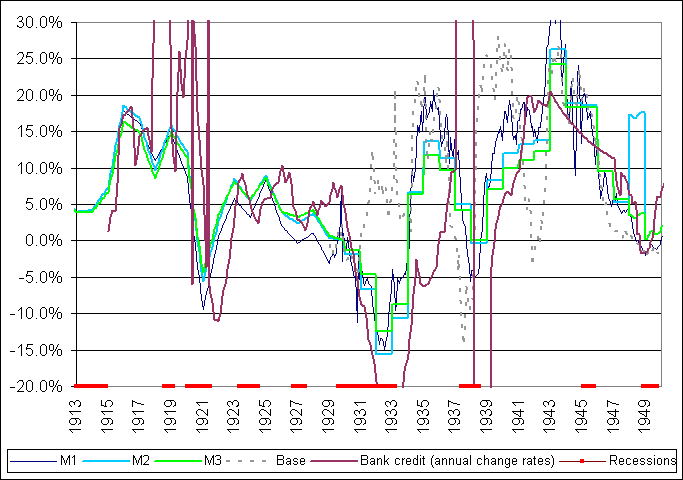Finster provoked me, in his way, to post this:
Three guys on an island: one sells bananas, one sells carrots, and the other sells water. Due to how where they're on the island (the soil, geology, etc), they can only produce their particular commodity.
They have a currency called "Sand Dollars" which there aren't any more on the island. Say, they have 1000 each.
Let's imagine, for simplicity, that the bananas, carrots, and water are all required to live. They pay each other their sand dollars, and get their water and bananas, or water and carrots, or carrots and bananas,
Suddenly, there is an earthquake and the internet is invented, err, the geological composition of the island is re-arranged and everyone can easy get their own water, carrots and bananas. The price of DVD players, water, carrots, and bananas plummets.
Are the sand dollars now worthless? What if they now use the sand dollars to buy the tomatoes (not necessary to live, but quite tasty) that were on the island but only grow rarely.
If suddenly the tomatos are worth 4x what they were before, do we have a tomato bubble?
Three guys on an island: one sells bananas, one sells carrots, and the other sells water. Due to how where they're on the island (the soil, geology, etc), they can only produce their particular commodity.
They have a currency called "Sand Dollars" which there aren't any more on the island. Say, they have 1000 each.
Let's imagine, for simplicity, that the bananas, carrots, and water are all required to live. They pay each other their sand dollars, and get their water and bananas, or water and carrots, or carrots and bananas,
Suddenly, there is an earthquake and the internet is invented, err, the geological composition of the island is re-arranged and everyone can easy get their own water, carrots and bananas. The price of DVD players, water, carrots, and bananas plummets.
Are the sand dollars now worthless? What if they now use the sand dollars to buy the tomatoes (not necessary to live, but quite tasty) that were on the island but only grow rarely.
If suddenly the tomatos are worth 4x what they were before, do we have a tomato bubble?
 I think one of the central points of confusion here is of mixing up issues having to do with the real economy and monetary issues. If your questions are forcing us to grapple with our confusion, they are adding greatly to our understanding.
I think one of the central points of confusion here is of mixing up issues having to do with the real economy and monetary issues. If your questions are forcing us to grapple with our confusion, they are adding greatly to our understanding.

Comment